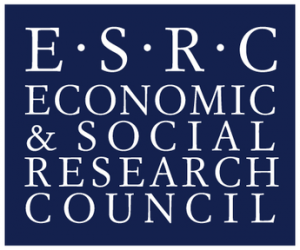Processes and practices of governing in further education colleges in the UK: How do governing boards realise the strategic aims of the organisation?
Further Education (FE) is considered vital to the economic and social wellbeing of the UK, providing high level technical skills and ‘second chances’ for adult learners. FE has a key strategic role to play in relation to individual advancement, reduction of social inequalities, and economic security. In the current context of political uncertainty, the success of the FE sector in improving productivity and addressing the skills gap in UK labour markets is essential if the UK is to sustain and advance its economic position.
FE has been subject to a rapidly shifting, and increasingly divergent, policy context across the devolved polities of the UK. Common, however, are shifts towards rationalisation and merger. In a difficult financial climate, such processes can be expected to foster fundamental change, and at an increasing pace. This has considerable implications for leadership and governance of colleges, demanding greater analysis and understanding of the role of the governing board.
The importance attached to college governance is reflected in the recently introduced codes of good governance covering FE in England, Wales and Scotland (AoC 2015, Colleges Wales 2015, Scottish Government 2014). ‘Good’ governance is, however, a ‘rare and unnatural act’ (Taylor et al. 1996) and, in both the corporate (private business) and not-for-profit sectors, has been subject to much criticism and censure with many examples of mismanagement attributed to the failure of governing bodies to effectively oversee organisations or provide appropriate strategic direction (BIS 2015c, Scottish Government 2016, Shattock 2006). Many of the failures of governance can be put down to a lack of understanding, by organisations and boards themselves, of what governing is or the practices that attend it (Hill et al. 2016). Codes of good governance are based on normative statements that do not address questions of what boards really do to achieve these aims. The work of the governing board is thus undertheorised: much research has focused on structures and procedures in terms of the formal constitution of entities providing accountability mechanisms (Boyd et al. 2011), with little known about the processes and practices of governing or relationships between governance, leadership and organisational aims/outcomes (Johnson et al. 2013, Lassnigg 2012, McNulty et al. 2013). In acknowledging this deficit, Cadbury (2000, 12) argues
‘the most useful field for further research would be into what goes on in boards … The more that research can concentrate on boards in action, on process rather than structure, the greater the chance that research findings will be operationally relevant and acted upon’.
While the development of ‘strategy’ is assumed to be a key factor, understanding of how boards go about doing strategy is limited (Bezemer et al. 2014, Hendry et al. 2010); very little is known in research terms about ‘boards in action’ in FE colleges and, crucially, how this connects with leadership and the strategic aims and outcomes of the organisation. If effective governance is seen as key to securing improvements in FE then it is imperative that the processes and practices of governing by which this might occur are better understood. This makes the research proposed here both highly significant and timely.
Substantive aims, objectives and research questions
While recognising that governance is distributed across and within organisations, this research focuses on the role of the board in the discursive construction of strategy and its relation to organisational aims and quality of provision. The aim of the research was therefore to investigate boards in action in FE colleges, across the diverse and diverging policy contexts of the four UK countries, in order to contribute to understanding and theory of governance/governing and how this relates to the achievement of the strategic aims of colleges in meeting the needs of learners, employers and labour markets. The research therefore promised to yield important empirical evidence about the functioning of boards leading to enhanced understanding of processes and practices of governing which will benefit the sector and contribute to knowledge which will inform recruitment, induction, and performance review of boards. In addition, the theoretical knowledge generated will be of wider relevance and benefit to academics conducting research within both the public and private sectors and will contribute to scholarship around strategising, decision-making and leadership. The objectives of the ESRC-funded project were to:
- Reveal the practices that collectively constitute governing;
- Explore the processes that underpin the construction of ‘strategic aims’, ‘outcomes’ and ‘quality of provision’;
- Investigate the ways in which boards are positioned within complex policy/external contexts, particularly in relation to governments, labour markets and employers;
- Consider how strategic decision-making addresses issues of quality of provision, including provision that is equitable, promotes social mobility, and addresses questions of inequality and social justice;
- Examine the relationship between boards, leadership and management;
- Consider sources of accountability (including Instruments and Articles of Governance and inspection regimes) and how these influence processes and practices of governing boards;
- Reveal disjuncts between aspirations and enactments of governing.



